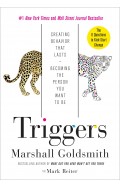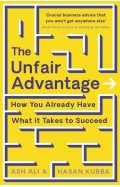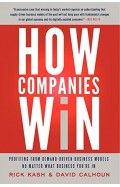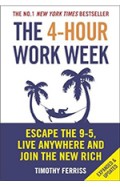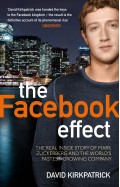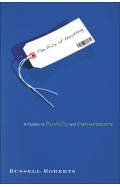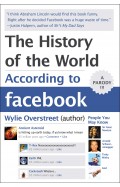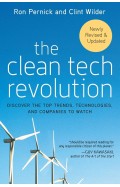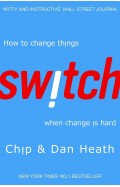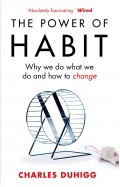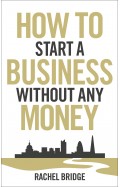Free Lunch Thinking - How Economics Ruins the Economy
By: Tom Bergin
-
Rs 2,375.75
- Rs 2,795.00
- 15%
You save Rs 419.25.
Due to constant currency fluctuation, prices are subject to change with or without notice.
The question is: are policy makers right to be so slavishly reliant on them? Tom Bergin is sceptical, and in Free Lunch Thinking he subjects eight of the most prevalent economic mantras to close scrutiny, assessing how they play out in practice. Again and again, he shows how individuals, companies and markets fail to respond to policy changes as theory predicts. He exposes the missed opportunities and wasted resources that result. And by tracing the development of key economic tenets, he demonstrates how their champions' tendency to believe in phenomena for which they have little hard evidence leaves accepted economic wisdom frequently being more about faith than facts.
His book both exposes and challenges lazy thinking. It also sets out a path for more considered future.
The question is: are policy makers right to be so slavishly reliant on them? Tom Bergin is sceptical, and in Free Lunch Thinking he subjects eight of the most prevalent economic mantras to close scrutiny, assessing how they play out in practice. Again and again, he shows how individuals, companies and markets fail to respond to policy changes as theory predicts. He exposes the missed opportunities and wasted resources that result. And by tracing the development of key economic tenets, he demonstrates how their champions' tendency to believe in phenomena for which they have little hard evidence leaves accepted economic wisdom frequently being more about faith than facts.
His book both exposes and challenges lazy thinking. It also sets out a path for more considered future.
Free Lunch Thinking - How Economics Ruins the Economy
By: Tom Bergin
Rs 2,375.75 Rs 2,795.00 Ex Tax :Rs 2,375.75
Zubin Mehta: A Musical Journey (An Authorized Biography)
By: VOID - Bakhtiar K. Dadabhoy
Rs 892.50 Rs 1,050.00 Ex Tax :Rs 892.50
Triggers: Creating Behavior That Lasts--becoming the Person You Want to Be
By: Marshall Goldsmith
Rs 2,335.50 Rs 2,595.00 Ex Tax :Rs 2,335.50
The Unfair Advantage - How You Already Have What It Takes to Succeed
By: Ash Ali
Rs 2,965.50 Rs 3,295.00 Ex Tax :Rs 2,965.50
Magicians of the Gods - Fingerprints of the Gods
By: Graham Hancock
Rs 2,965.50 Rs 3,295.00 Ex Tax :Rs 2,965.50
How Companies Win Profiting From Demand Driven Busine Models No Matter What BusineYoure In
By: Rick Kash
Rs 1,695.75 Rs 1,995.00 Ex Tax :Rs 1,695.75
The 4 Hour Work Week Escape The 9 5 Live Anywhere And Join The New Rich
By: Timothy Ferriss
Rs 2,695.50 Rs 2,995.00 Ex Tax :Rs 2,695.50
The Facebook Effect: The Real Inside Story of Mark Zuckerberg and the Worlds Fastest Growing Company: The Inside Story of the Company That is Connecting the World
By: David Kirkpatrick
Rs 3,017.50 Rs 3,550.00 Ex Tax :Rs 3,017.50
The Price Of Everything A Parable Of Possibility And Prosperity
By: Russell Roberts
Rs 1,211.25 Rs 1,425.00 Ex Tax :Rs 1,211.25
The History of the World According to Facebook
By: Wylie Overstreet
Rs 1,015.75 Rs 1,195.00 Ex Tax :Rs 1,015.75
The Clean Tech Revolution Discover the Top Trends Technologies and Companies to Watch
By: Ron Pernick
Rs 930.75 Rs 1,095.00 Ex Tax :Rs 930.75
Switch: How to change things when change is hard - (PB)
By: Dan Heath
Rs 1,255.50 Rs 1,395.00 Ex Tax :Rs 1,255.50
The Power of Habit Why We Do What We Do and How to Change
By: Charles Duhigg
Rs 2,695.50 Rs 2,995.00 Ex Tax :Rs 2,695.50
How To Start a Busines Without Any Money
By: Rachel Bridge
Rs 2,785.50 Rs 3,095.00 Ex Tax :Rs 2,785.50
Triggers: Creating Behavior That Lasts--becoming the Person You Want to Be
By: Marshall Goldsmith
Rs 2,335.50 Rs 2,595.00 Ex Tax :Rs 2,335.50
The Unfair Advantage - How You Already Have What It Takes to Succeed
By: Ash Ali
Rs 2,965.50 Rs 3,295.00 Ex Tax :Rs 2,965.50
Magicians of the Gods - Fingerprints of the Gods
By: Graham Hancock
Rs 2,965.50 Rs 3,295.00 Ex Tax :Rs 2,965.50
No recently viewed books available at the moment.
Zubin Mehta: A Musical Journey (An Authorized Biography)
By: VOID - Bakhtiar K. Dadabhoy
Rs 892.50 Rs 1,050.00 Ex Tax :Rs 892.50
Free Lunch Thinking - How Economics Ruins the Economy
By: Tom Bergin
Rs 2,375.75 Rs 2,795.00 Ex Tax :Rs 2,375.75
Triggers: Creating Behavior That Lasts--becoming the Person You Want to Be
By: Marshall Goldsmith
Rs 2,335.50 Rs 2,595.00 Ex Tax :Rs 2,335.50
The Unfair Advantage - How You Already Have What It Takes to Succeed
By: Ash Ali
Rs 2,965.50 Rs 3,295.00 Ex Tax :Rs 2,965.50
Magicians of the Gods - Fingerprints of the Gods
By: Graham Hancock
Rs 2,965.50 Rs 3,295.00 Ex Tax :Rs 2,965.50












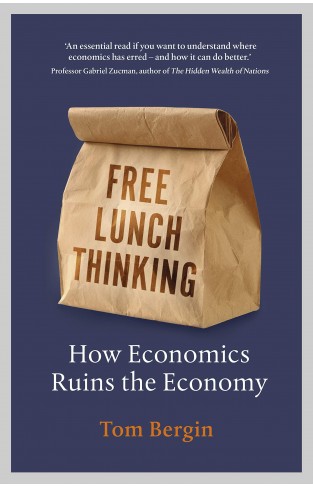

-120x187.jpg?q6)





